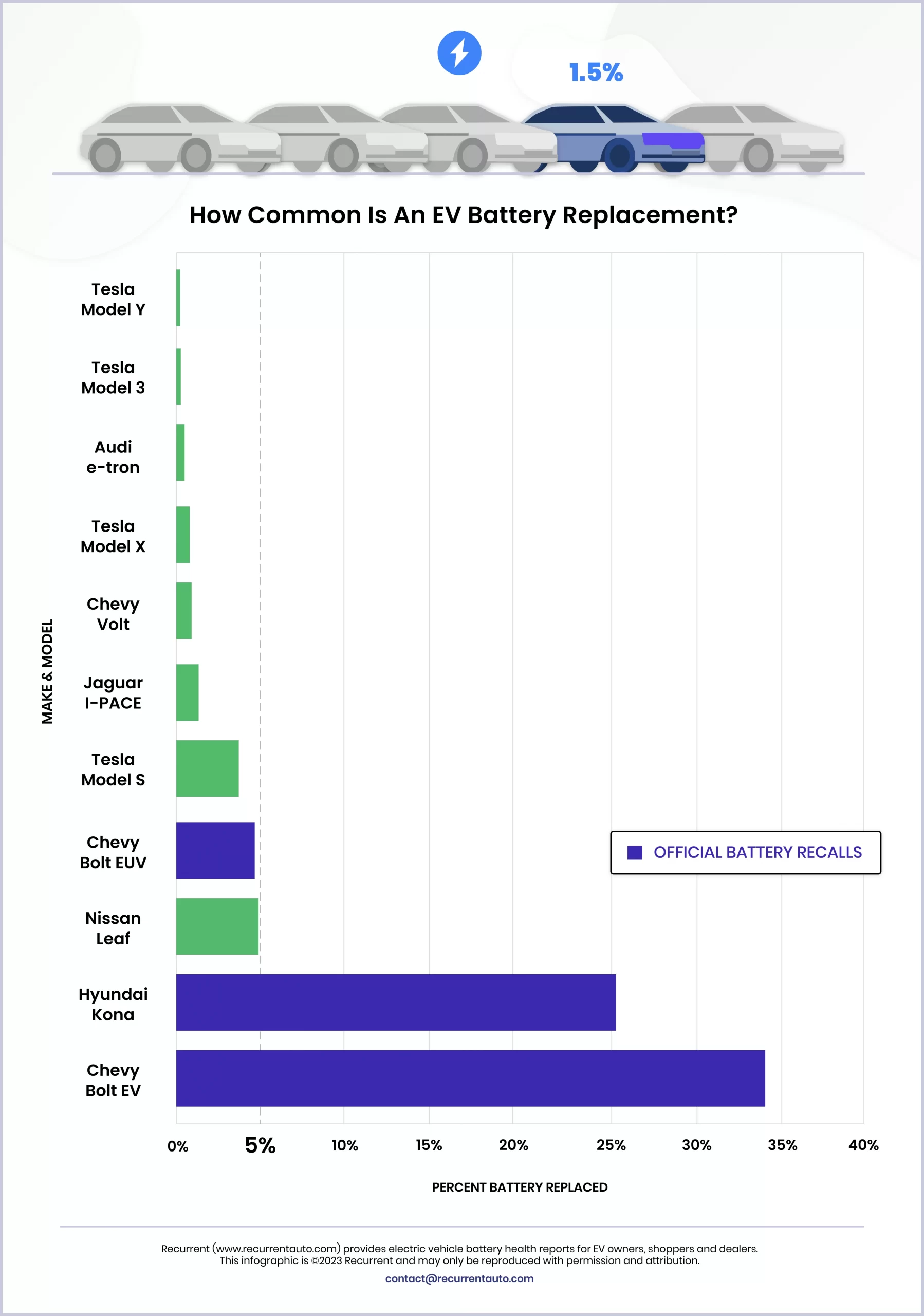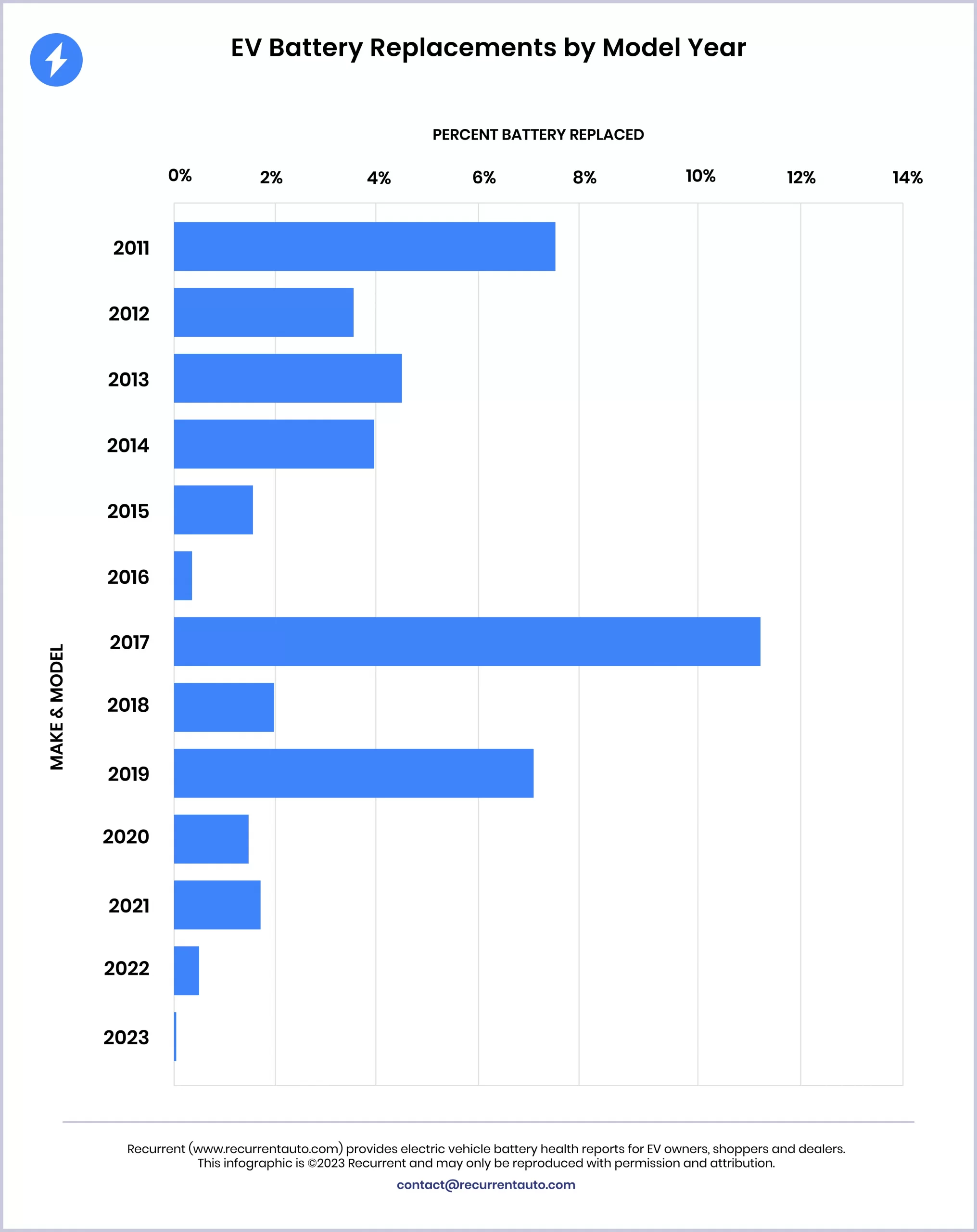
Toronto, Ontario — Most electric vehicle batteries are still in their original cars, says a new study from Recurrent.
The company took data from its community of 15,000+ EV owners to discover that, when recalls are removed from the equation, Nissan LEAF models and Tesla Model S cars see the highest number of battery replacements, on average.
 EV battery replacements by model. CREDIT: Recurrent
EV battery replacements by model. CREDIT: Recurrent
Both the Nissan LEAF and Tesla Model S are some of the oldest models in the Recurrent community fleet, said the site–so it makes sense they see the most battery replacements. When the 2017 Chevrolet Bolt and 2019/2020 Hyundai Kona recalls are taken out of consideration, Recurrent also finds that the older the vehicle, the higher the chance of a battery replacement.
 EV Replacements by model year. CREDIT: Recurrent
EV Replacements by model year. CREDIT: Recurrent
Non-recall battery replacements are highest in the 2013 Tesla Model S (8.5 percent); 2014 Tesla Model S (7.3 percent); 2015 Tesla Model S; 2011 Nissan LEAF (8.3 percent) and 2012 Nissan LEAF (3.5 percent).
Recurrent also measured how EV battery range degrades over time, based on each model.
While the Nissan LEAF initially suffered from battery chemistry challenges, the new-and-improved battery used since has seen “great success,” wrote Recurrent, degrading very little over a 100,000-mile lifespan. In fact, Nissan has been recorded on record estimating their EV batteries can outlive the cars that house them, predicting lifespans upwards of 20 years.
The Tesla Model S, at least the 100 kwH version, “perfectly matches the beginning of the idealized battery degradation curve,” but the smaller battery-pack version has a less severe degradation, remaining fairly consistent in its ability to hold a charge past 60,000 miles.











